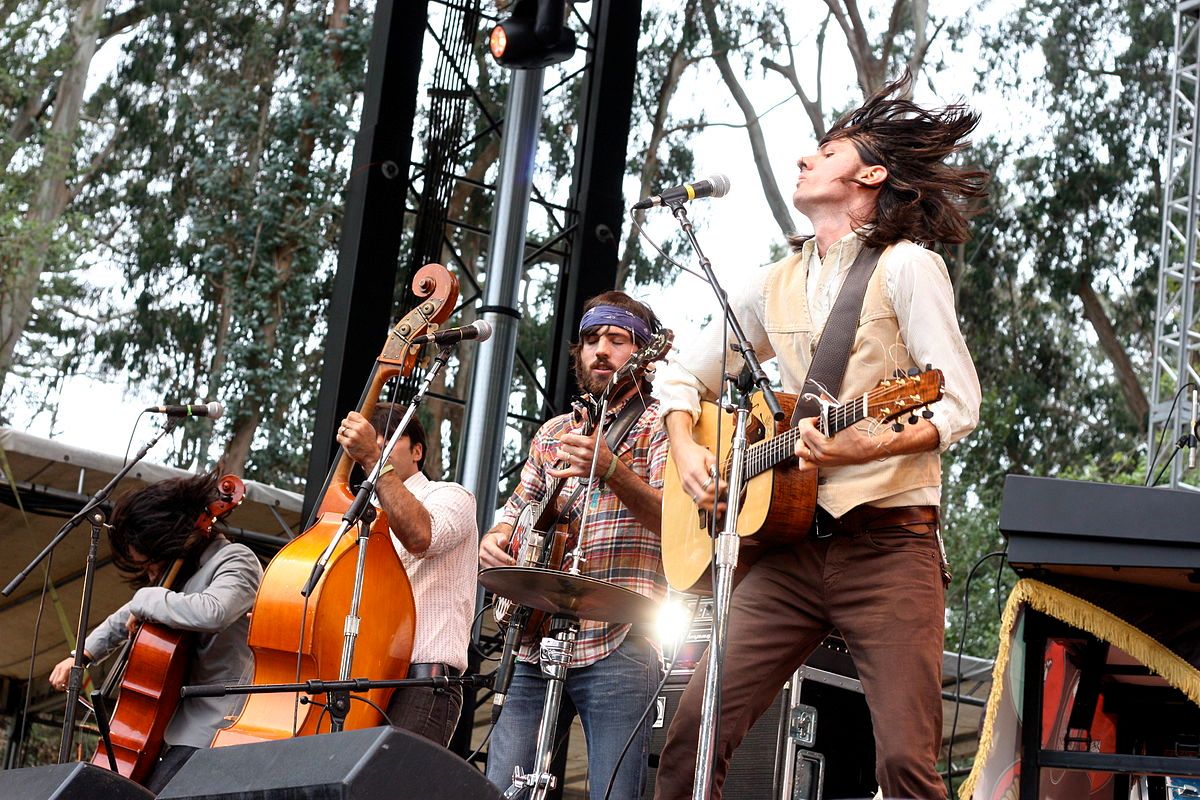The Avett Brothers Confuses with Sociopolitical Agenda

If you’ve ever met a white guy who recently read Ta Nehisi Coates’ “Between the World and Me” for the first time and really wants to tell you that (gasp) racism isn’t just about the KKK and the n-word, then you’ve essentially already listened to the Avett Brothers’ new album “Closer Than Together.” In other words, the band’s heart is in the right place, but listening to some of the tracks, you’ll find yourself skeptically interjecting, “Yes, and…”
The band, known for its stadium-filling folk-rock-meets-pseudo-country style, has never made any ostensible foray into the political arena. The music is generally characterized by its expertly arranged harmonies, soothing acoustic guitars, occasional foot-stomping anthems and of course band leader Seth Avett’s penetrating vocals. The lyrics themselves are often vacuous but nonetheless enjoyable.
To say that “Closer Than Together” doesn’t live up to this shining musical track record would be wholly untrue — in fact one could argue that the new album is even a step forward in terms of stylistic breadth. The album’s opener, an explosive rock elegy called “Bleeding White,” is a refreshing departure from the band’s typical folksy routine and certainly one of the better album openers of modern rock. The album includes uplifting ditties (“Tell The Truth,” “C Sections and Railway Trestles”), sympathetic ballads (“Long Story Short”) and another catchy lament by the name of “Bang Bang”— a highlight of the album. Musically, “Closer Than Together” checks all the band’s boxes and maybe even adds some new ones to the list for the genre.
This album isn’t just a musical shift for the band, however. Almost four months before the album’s release, Avett decided to post a “mission statement” for the album on Instagram. The document began with the dubious statement: “The last thing the world needs is another piece of sociopolitical commentary” and ended with the outright confusing conclusion that “the Avett Brothers will probably never make a sociopolitical record. But if we did, it might sound something like this.” Queue the deafening applause of an overwhelmingly white fan base.
In trying to produce a “mission statement” — a document whose sole purpose is to clarify the aims of its author — Avett seems to have really just stoked his audience with an excessively wordy and strategically vague ad. The 21,000+ likes on the post may be in support of the Avett Brothers’ new “social justice” album just as much as they could be for the Avett Brothers’ new “let’s stop being PC!” album. After all, “sociopolitical” doesn’t necessarily mean “social justice,” and everyone supports some kind of politics — whether it be the building of a border wall or the implementation of universal health care. Ultimately, nothing about this “mission statement” definitively tells the audience what stance the album is taking.
Nevertheless, listening to the album you quickly realize that it intends to highlight some of the injustices and atrocities of American society, such as slavery, American colonization, sexism and gun violence. An album that parses such sensitive subjects would thus rely heavily on the content and quality of its lyrics, especially when the band is composed primarily of straight, cisgender, white, Christian men. Unfortunately for the Avett Brothers, lyrical acuity has never been the band’s forte, and considering the content of “Closer Than Together,” that weakness now has some real implications.
There’s a certain awkwardness, for example, to the way most of the “woke” songs open with lyrics that seem to belie the overarching message. The first verse of “We Americans” sounds straight out of your run-of-the-mill stadium country song (“I grew up with reverence for the red, white and blue…”) and then goes on to mourn and memorialize the enslavement of black people and the genocide of indigenous people. Sure, patriotism doesn’t preclude social justice, but in this case, the framing of the song’s solemn content (a couple of the refrains: “Blood in the soil with the cotton and tobacco…” and “Blood on the table with the coffee and the sugar…”) through its patriotic overture makes the whole thing seem a bit glib and potentially conveys the wrong message.
Helen Harrington ’22, who attended the Avett Brothers’ Oct. 4 concert in Worcester where the song dropped, expressed her discomfort with the experience. “It’s a very white audience that got really excited about lines that acknowledged America as built on stolen land through slave labor. It was kind of uncomfortable for me because I felt like folks were cheering the acknowledgement without mourning the atrocities,” she noted. The message that the Avett Brothers’ audience draws allows them to celebrate their “wokeness” without understanding the extent of their own culpability.
In the case of the song “New Woman’s World” — generally about sexism — the lyrics seem to miss the mark entirely. The song opens with the words, “It used to be a man’s world, but we didn’t treat it right … I’m glad it’s finally in the hands of the women and the girls.” Aside from the potential Trumpian misinterpretations of that first (and often repeated) phrase, the verse overall lends to the interpretation that the patriarchy no longer exists, which is equally flawed. Generally, it also seems odd how the “woke” songs are a minority on this album, consistently buffered by uncontroversial bops. In doing so, the album almost seems to say, “These issues are important but depressing, so here are some more songs to dilute that message.” Overall then, “Closer Than Together” actually seems to have stuck to its mission statement pretty well.
On the other hand, for some of the more political pieces on the album, the Avett Brothers’ privilege actually seems to aid the social justice messages. “Bang Bang,” even if a bit melodramatic, provides an indictment of overzealous gun culture from the perspective of someone likely well acquainted with it: a white man from the South. Similarly, “Long Story Short” suggests a narrative for the making of mass shooters, but it does so rather subtly and to an innocent tune reminiscent of the decidedly more upbeat John Prine classic “Paradise.” Whether the account is accurate, I have no idea, but at least the presentation avoids the sledgehammer approach of most of the other songs.
Furthermore, if you put aside the potential for misinterpretation, there’s political value in presenting these issues at all (even if simplistically or somewhat inaccurately) to an audience that might never have encountered them otherwise; the band could potentially inspire its audience to independently learn more about these issues and hopefully come to more developed conclusions. Whether this would truly be the result, though, is more a question for a social scientist.
The Avett Brothers seem, then, to have made some sort of “sociopolitical album.” What exactly this album advocates for, however, remains unclear. After all, the Avett Brothers are no Rage Against the Machine, and you get what you sign up for; what the band lacks in Noam Chomsky quotes, it makes up for in a sound that doesn’t wage war against your ears. If you decide to listen to “Closer Than Together,” expect great music, (at best) dubious lyrics and a whole lot of confusion.





Comments ()